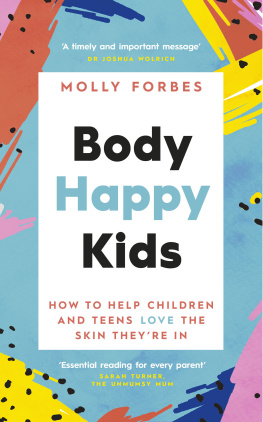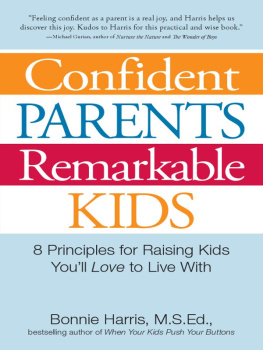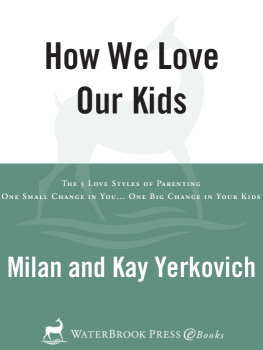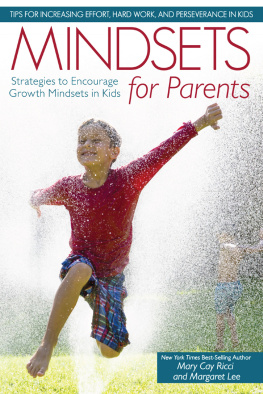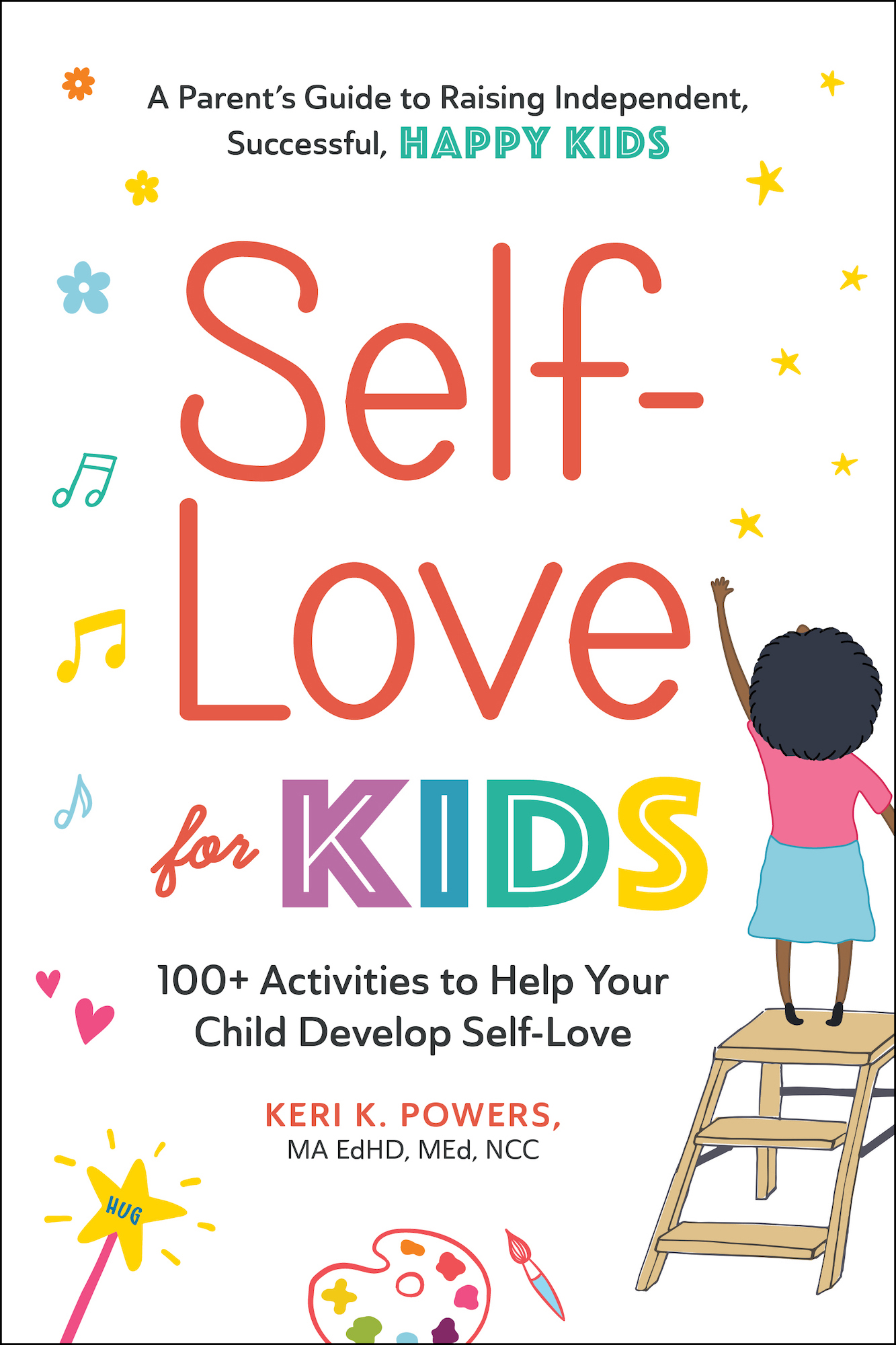Contents
Guide
A Parents Guide to Raising Independent, Successful, Happy Kids
Self-Love for Kids
100+ Activities to Help Your Child Develop Self-Love
Keri K. Powers, MA EdHD, MEd, NCC
INTRODUCTION
Self-love is an admiration and appreciation of yourselfyour personality, identity, preferences, body, beliefs, and more. All parents and caregivers want their children to experience healthy, fulfilling, and lifelong self-lovebut how can you nurture it in kids? With play! The 100+ simple games and activities in Self-Love for Kids will help you encourage self-love in children, so they are not afraid to make mistakes, explore their identities, or set big goals.
Teaching your young child the importance of self-love early onat around ages 511offers a wide range of important benefits. Researchers believe that self-love in childhood can help set the foundation for happiness and success in adulthood.
Self-love is a by-product of high self-esteem and is developed by cultivating the following components:
- Security
- Belonging
- Confidence
- Competence
- Purpose and contribution
- Influence
- Identity
- Worth
- Physical well-being
Each chapter in Part 2 of this book will focus on one of those attributes and offer activities that build and practice it. All the activities will include an appropriate age range, a list of materials needed, step-by-step instructions for setting up and completing the activities, and important reflection questions to ask your child. Really focus in on those reflection questions to encourage your child to think about the impact of the activities and to help them look ahead to how they might implement newly learned strategies in everyday life.
These activities can be done in a short amount of time, either at home within your family, with a group of friends on a playdate or in the neighborhood, or even at a distance with family and friends over a video chat. The activities teach kids through imaginative play, hands-on experience, watching others model relevant skills, and person-to-person interaction. Every child is different, so this range of techniques allows you to choose which are best for your childs personality and age as well as the situation at hand.
The activities in this book can help you and your child bond, all while helping them blossom into the beautiful, unique person you know they are. Practicing the self-love skills featured in this book will give your child the emotional intelligence to feel happy and confident at home, at the playground, in the community, at school, and beyond! Lets get started!
UNDERSTANDING SELF-LOVE
In Part 1, well explore what self-love actually is and why its so important for your child, both right now and in the future. The development of self-love has deep roots in self-esteem. Youll learn roughly when and how self-esteem develops, changes, and flourishes in childhood, as well as which factors influence a childs self-esteem. Youll also discover the important components of self-love (such as security, identity, and worth), a list of skills kids will use to develop self-love (such as mindfulness, self-reflection, and problem-solving), and a variety of ways you can teach, mold, and build self-love in kids.
If that feels like a lot of information, its because it is! But that key foundational background will help you see the importance in each activity that comes later in the book. Understanding the why behind each component of the activities will give you better perspective into how you can help your child specifically develop meaningful, loving feelings toward themselves that last a lifetime. Lets dive in and explore all the facets that contribute to self-esteem and self-love!
CHAPTER 1 SELF-LOVE 101
WHAT IS SELF-LOVE?
As mentioned in the introduction, self-love is an admiration and appreciation of yourselfyour personality, identity, preferences, body, beliefs, and more. Self-love is a by-product of high self-esteem. When you have a positive sense of self and view yourself as worthy and of value, self-love comes naturally! Thats why it is so important to build that solid foundation of self-esteem so that self-love can arise.
Self-esteem is a phrase parents and caregivers hear often. Make sure your child has high self-esteembut not too high. Do things to boost your childs self-esteembut dont do too much. Parents receive so many mixed messages about how to help their children love themselves. To add to the confusion, there are also many terms that are used interchangeably when discussing self-love, like self-esteem, self-worth, confidence, and self-respect. Its no wonder there are so many books, blogs, and podcasts dedicated to this very topic.
To fully understand what self-love is, it is helpful to define it along with common terms that are often used interchangeably with it.
Each of these terms helps define and contribute to your awareness and evaluation of your worth, value, and capacity for success. But dont get caught up in the semantics; when discussing these things with your child, feel free to just say self-love or self-esteem.
Term | Definition |
|---|
Self-compassion | How you relate to or treat yourself; the degree to which you are kind and forgiving toward yourself |
Self-concept | The perception you have of yourself; the awareness of who you are |
Self-confidence | The perception you have about your ability to face challenges, solve problems, and engage with the world |
Self-efficacy | Your belief that you can succeed at certain tasks |
Self-esteem | Your subjective view of your own worth or value and what you think, feel, and believe about yourself |
Self-image | How you see yourself (similar to self-concept) |
Self-love | The belief that you are worthy of love, along with the actions and thoughts that demonstrate love and care toward yourself |
Self-worth | Your perception of your worth in the world |
MEASURING SELF-LOVE
Self-love is measurable and changes over time. It occurs on a spectrum and, like self-esteem, is often described as being high or low. Low self-love and self-esteem are characterized by:
- Low confidence
- A feeling of having little control over ones choices or experiences
- Engaging in negative social comparison
- Not asking for or advocating for needs
- Worry or self-doubt
- Difficulty accepting positive feedback
- Negative self-talk
- Negative outlook or view of the world
- Lack of boundaries
- Engaging in people-pleasing
On the other hand, high self-love and self-esteem are characterized by:
- High confidence
- Engaging in appropriate social comparison or self-comparison




